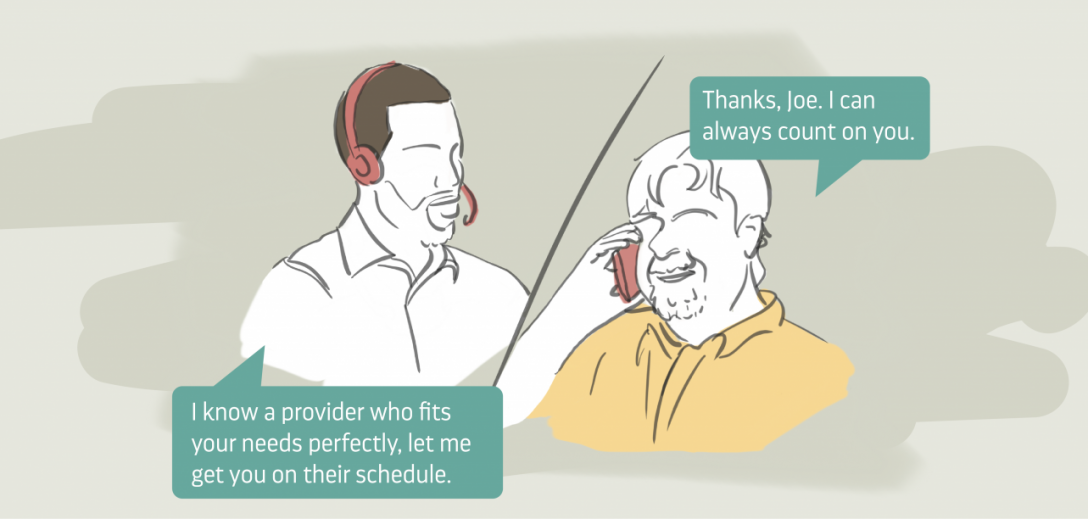This month, both the Design Management Institute and the Service Design Network recognized our work with University Hospitals Cutler Center for Men in their annual design awards. We designed this innovative men’s health center to incentivize men to engage with their health care in new ways. From an integrated digital experience to a physical space designed to promote connection to a staff training program to create employees who are dedicated to the mission, we set out to turn the health care experience into something men actively want to engage with. Through this work, we earned second place in the dmi Design Value Awards, and recognition as a finalist in the Service Design Network Award.
Men don’t like to go to the doctor
Men are 33% less likely to go to the doctor than women are. In fact, more than 40% of men don’t go to the doctor at all, unless they’re experiencing a major health issue. This avoidance isn’t just a quirk of the gender divide — it has consequences. Men live shorter lives than women by about seven years, give or take. And it isn’t just a problem of access or education. It’s a cultural problem, one that can’t be solved by applying the same old strategies that healthcare has used for decades. It requires a thoughtfully designed solution tailored specifically to the population it looks to serve.
“At the Cutler Center, men will experience a fresh approach to their health and wellbeing — with convenience and trust, and through modern engagement tools,” says Lee Ponsky, MD, Executive Director of the UH Cutler Center for Men. “Enhancing the quality and longevity of life for men simply has to be a priority in our communities and nationwide.”
Bringing confidence, connection, and customization
To design this unique and integrated men’s health care, we brought patients and providers into the conversation. Through a series of group design exercises, we asked participants to imagine an experience — digital and physical — that maximizes the sense of confidence, connection and customization. Prospective users were able to identify features and traits that are most important to them. This helps set the framework for a health care experience sure to elicit behavior change. The multi-faceted engagement strategy approaches men’s health from more than just a clinical perspective. It expands the definition of health care, supporting men in areas like mental health, financial well-being, relationships and parenthood.
“Thoughtful design has the power to influence behavior and change mindsets,” says ThoughtForm lead strategist Katie Schmiedicker. “One touchpoint at a time, we can support men in their journey to establish lifelong health habits. We’re so thankful that the Design Management Institute and the Service Design Network can see the importance of this work and are helping us to spread the message.”
This work intends to change the culture of men’s health in the Cleveland area – promoting preventative care and enabling men to seek health and wellness services. Alongside its current digital program, University Hospitals Cutler Center for Men will open its flagship physical location in the University Hospitals Ahuja Phase II expansion in Fall 2023.

